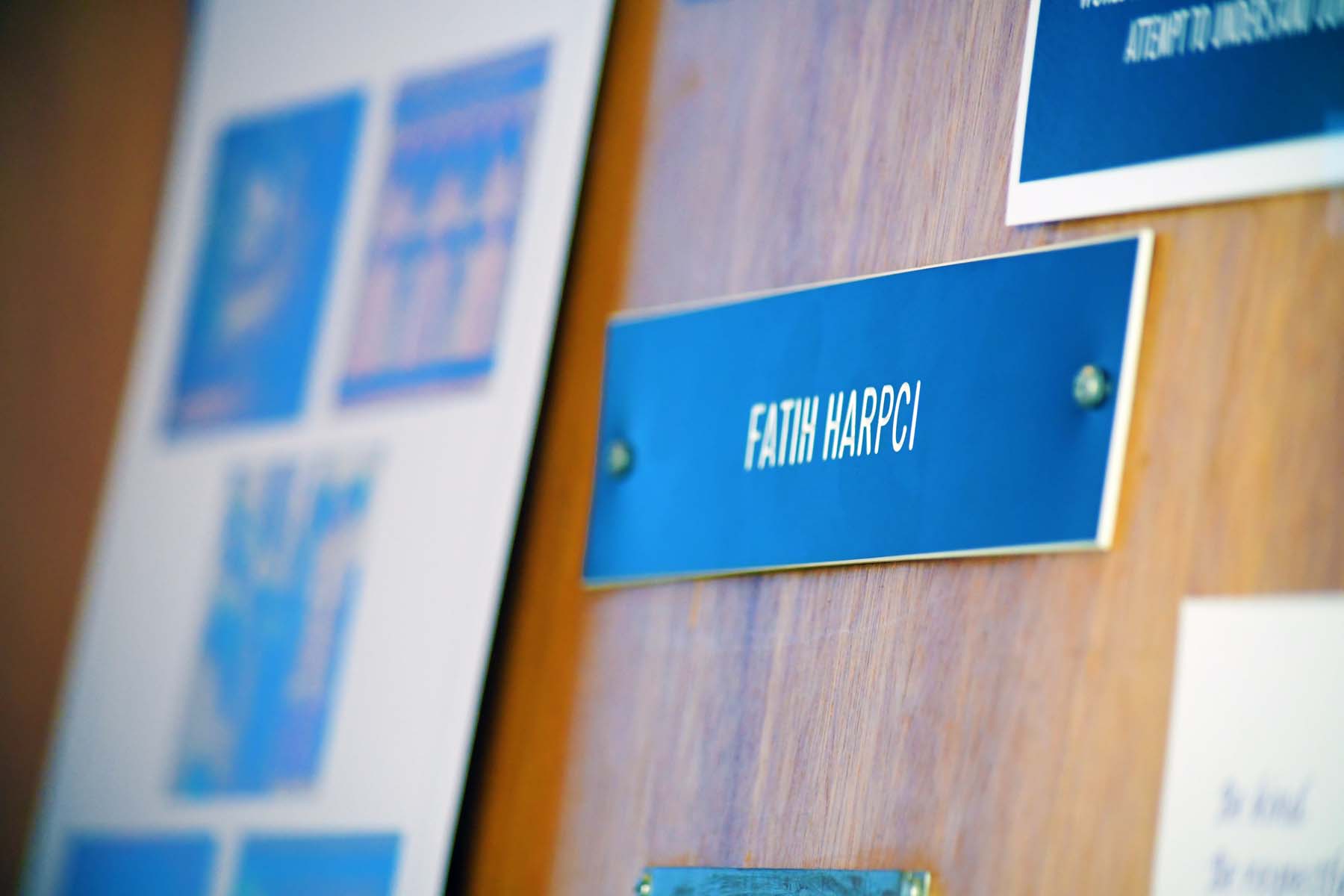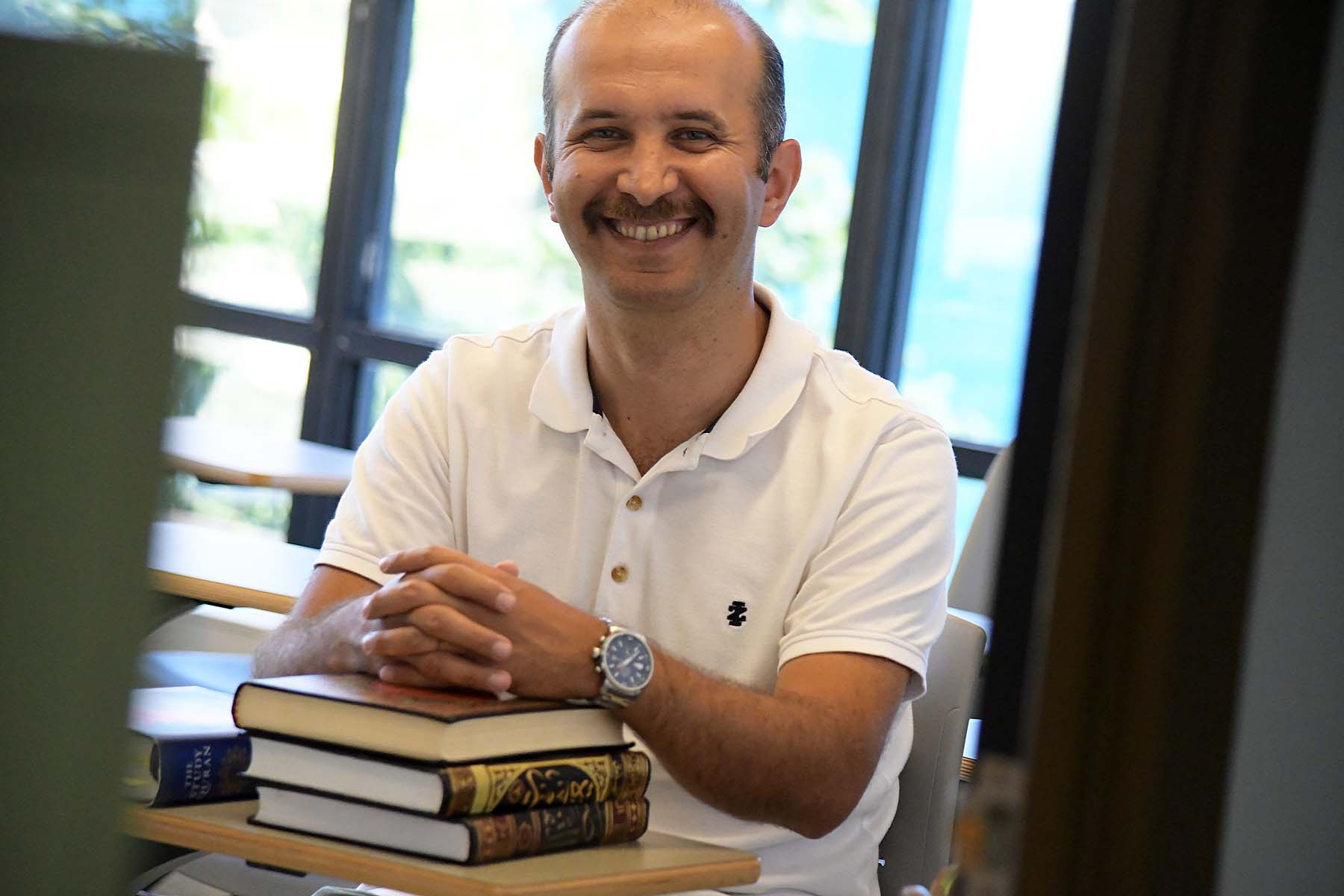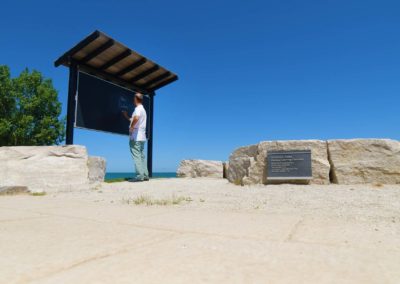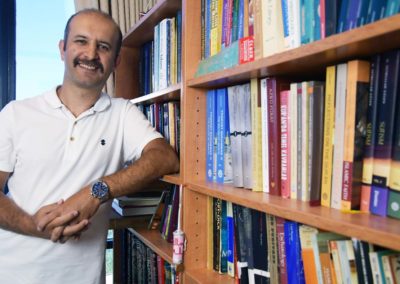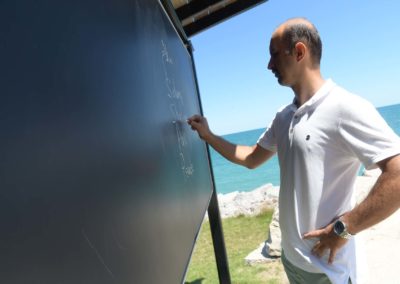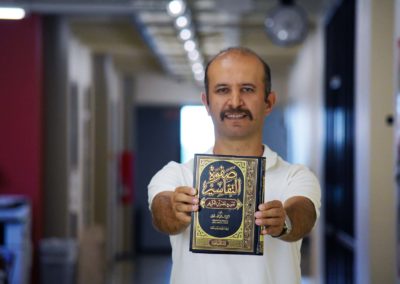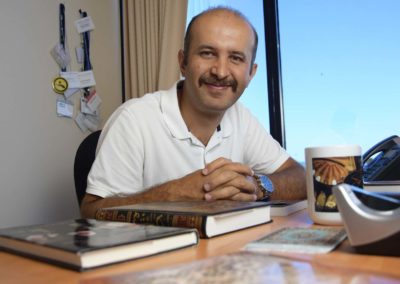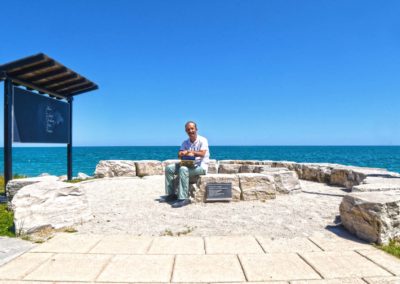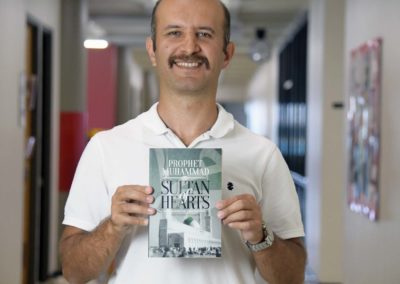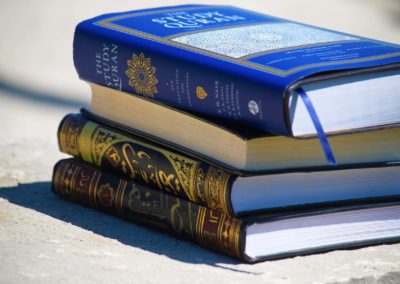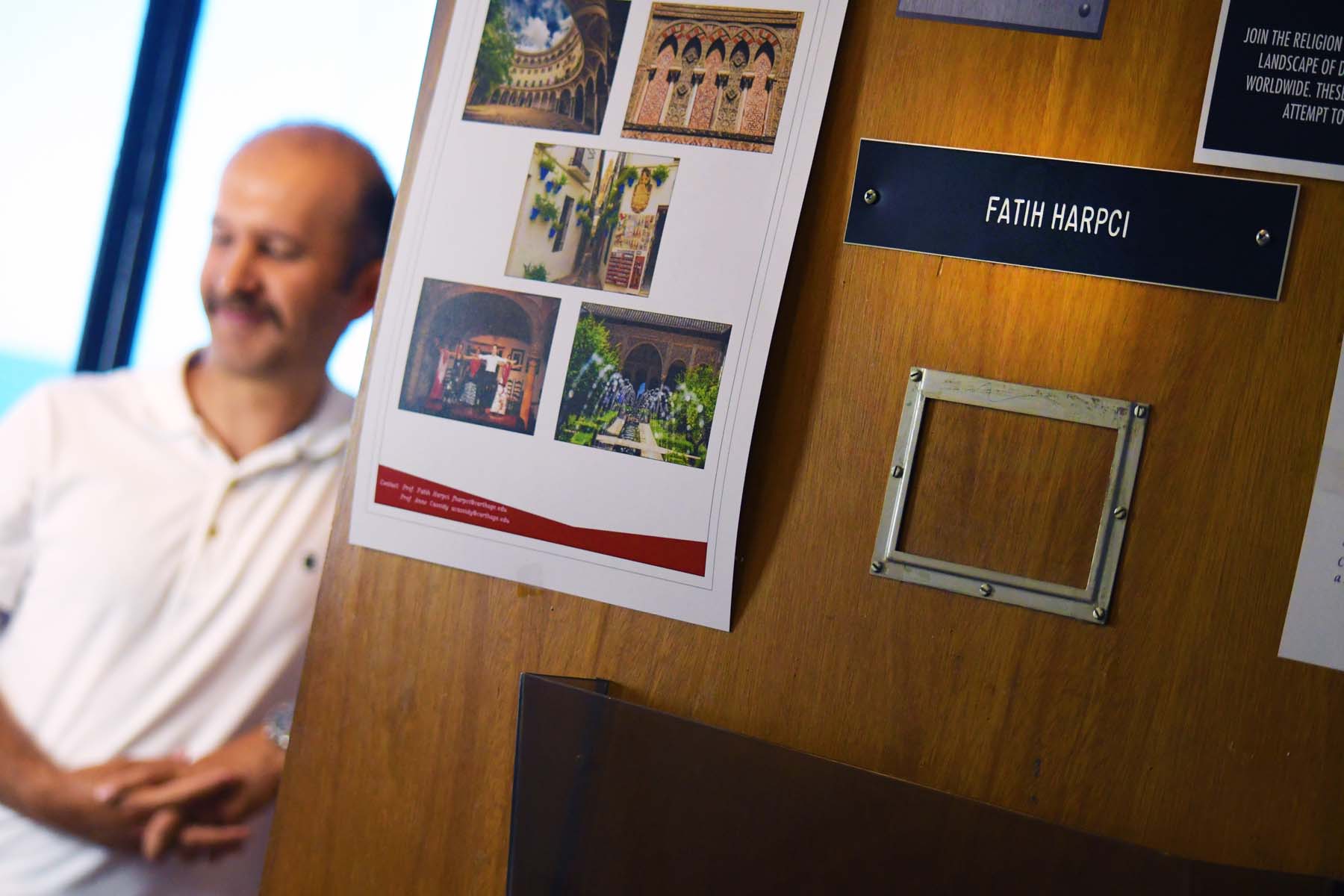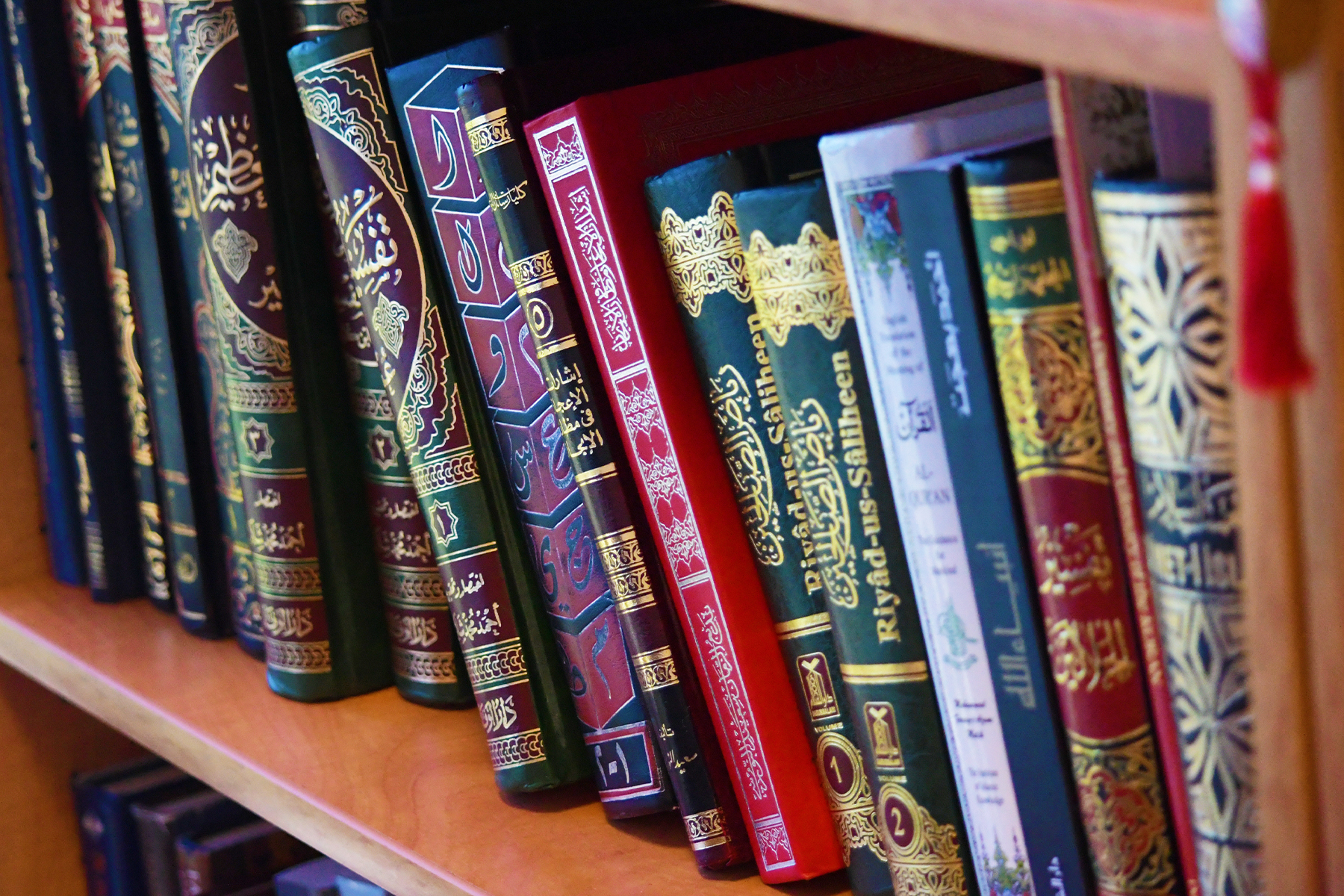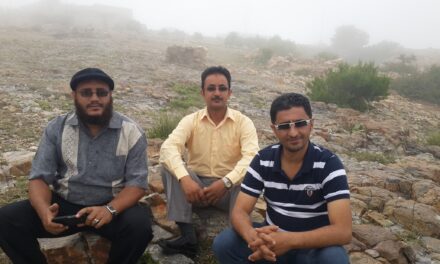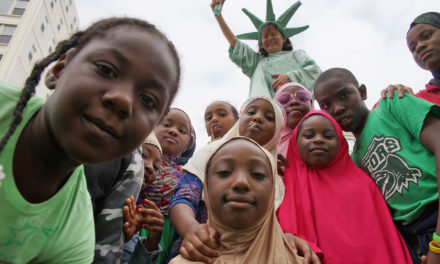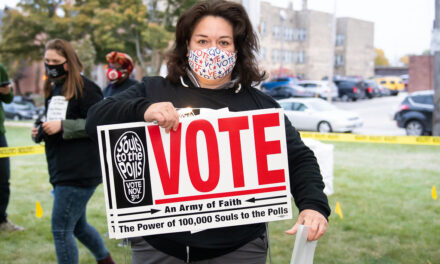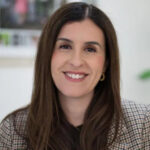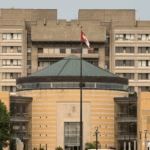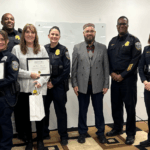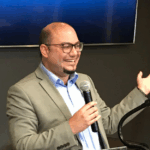© Photo
Lila Aryan Photography for Wisconsin Muslim Journal
Remote from the ideological battles and punitive budget cuts that plague large universities, the liberal arts college is the perfect place to pursue knowledge in its purest – and sometimes most relevant – forms. On the campus of Carthage College on Kenosha’s Lake Michigan shore, you can study everything from paleontology to Space Sciences (for those interested in joining NASA), with no shortage of the more typical majors like creative writing and nursing.
Every semester, the Carthage Religion Department offers a survey course called “Understandings of Religion,” a critical area in these divided times, and one that is sometimes overlooked at large universities. Every one of the college’s seven-member religion faculty teaches the class, including Carthage College’s resident Islamic scholar, Assistant Professor Fatih Harpci.
When Professor Harpci joined the Carthage faculty in 2014, the religion department had one course called “Islam.” Professor Harpci explains that “My task was to create new courses.” He took over the Islam survey course and continues to teach it. And he developed a full roster of five classes in Islamic studies that today are popular course offerings.
Along the way, Professor Harpci, who has a PhD in Islamic Studies from Temple University and was born in Turkey, has also created new understandings.
Listed in the Fall 2019 course catalogue is “Shared Sages in Sacred Scriptures: An Inter-religious Exploration.” In this class, “We study the stories of the prophets from Adam to Jesus,” says Dr. Harpci.
The fact that Adam is considered a prophet in Islam may raise the eyebrows of some Christians, who are accustomed to think of Adam only as “that guy who made the big mistake” on the way to becoming the father of us all.
But in the Quran, “Adam is considered a prophet. Implicitly, there are passages that he received conversation with God,” which, Professor Harpci says, is the very definition of a prophet.
In the Biblical version of the Adam and Eve story, the couple is punished after their fall from grace by being driven from the Garden of Eden. “In the Quranic version, you see them asking for forgiveness, and they are immediately forgiven,” Professor Harpci says. The Quranic version, he says, acknowledges that Adam and Eve “are forgetful as human beings – they both make the mistake, Adam and Eve together, and they both ask for forgiveness.”
The Sages class, says Professor Harpci, looks at both the Quran and the Bible as scripture. The Prophets are chosen by God – as in the Jewish and Christian traditions, and “They call their nation and their people to believe in one God and one Creator.” In Islamic tradition, Adam, Moses, David, Solomon, Jesus are all prophets, teaching the same message: “There is one God. Believe in Him.” Though “only 25 prophets are mentioned by name in the Quran . . . 22 of those are also figures you see in the Bible,” the professor says.
Providing these kinds of surprising and deep connections makes Professor Harpci’s classes popular on the Carthage campus. “There is a high demand for my courses,” he says.
“I want to show [students] the other side of Islam and Muslims they have not seen in the media. But I don’t sugarcoat. I try to stay away from ‘Islam is a religion of peace.’” A kind of default position in doctrinal arguments. “Every religion is a religion of peace – but there is violence in every religion,” Christian, Hindu, or Buddhist.
Carthage College’s student population consists of about 3,000 full- and part-time students, and, says Dr. Harpci, is about 60% Catholic, though the College is affiliated with the Evangelical Lutheran Church in America. Currently only about a dozen Muslim students attend classes at Carthage, Dr. Harpci says.
“There are 3 to 5 million Muslims in the U.S. That is 1 percent of the U.S. population,” he says. “Most of my students have never met or talked to a Muslim in their lives.” Therefore, “people see Muslims as alien, unknown” through the lens of distorted media images. Professor Harpci’s classes are aimed at correcting this distorted vision.
All the professor asks is that students are “interested” and “want to learn” as the best way to work through the misunderstandings that crop up both in the classroom – and in life.
Dr. Harpci describes moving to a new house in Kenosha three years ago. He and his wife Selma invited a neighboring couple over for dinner. They had a nice time, sharing good food and laughter. However, while Selma, who wears hijab, was in the kitchen, his neighbor turned to him and said, “Does your wife drive?” Then he rephrased the question, probably after seeing the professor’s expression. “Can she drive?”
“He had this idea that women cannot drive in Islam,” Dr. Harpci says. “I cannot blame this on just one guy in Kenosha.” Professor Harpci and his wife continue to be friendly with their neighbors. “We talk all the time. They know who we are and what I do.” And that creates a greater understanding as time goes on. But it is a two-way street. “Muslims have a responsibility here to go out and introduce themselves,” he says. To show people that “they do laugh. They have fun. They are human beings.”
To that end, tolerance and respect are course policies. ‘“Respect’ is a key word in my religion classes,” Professor Harpci says. “There will be disagreement, but discussion will happen through respect.”
Or, as the syllabus for the professor’s Islam class says:
Our purpose in this class is to explore this subject matter deeply and consider multiple perspectives and arguments. Students are expected to listen to the instructor and to one another respectfully, but of course are free to disagree, respectfully, with views expressed in class or readings.
To foster that respect, Professor Harpci has an inclusive policy regarding religious holidays – any religious holidays, from whatever tradition. “Let me know and you will be excused in my class. I teach the students to respect each other, not to hate each other.”
This is particularly important, since Professor Harpci knows that his course content has a way of spreading beyond the classroom. “Whatever we discuss [in class], they take home to their parents during Thanksgiving break.”
Fortunately, the professor’s mission of spreading understanding and tolerance through knowledge seems to be succeeding at Carthage. As one student wrote in her course evaluation:
I loved this course. I took it as a requirement, but ended up loving it. The religion of Islam is so relevant in our world today and it makes me so happy that Carthage offers it as a course here. The material we used for the class was so helpful and stimulating. I would, and already have, encouraged others to take this course with Harpci. All the material provided different ways of thinking about Islam and makes me want to learn even more.
And that, says Professor Harpci, is “the reason I love what I do and being at Carthage. When I see the course evaluations . . . , I say, ‘Mission accomplished.’”
